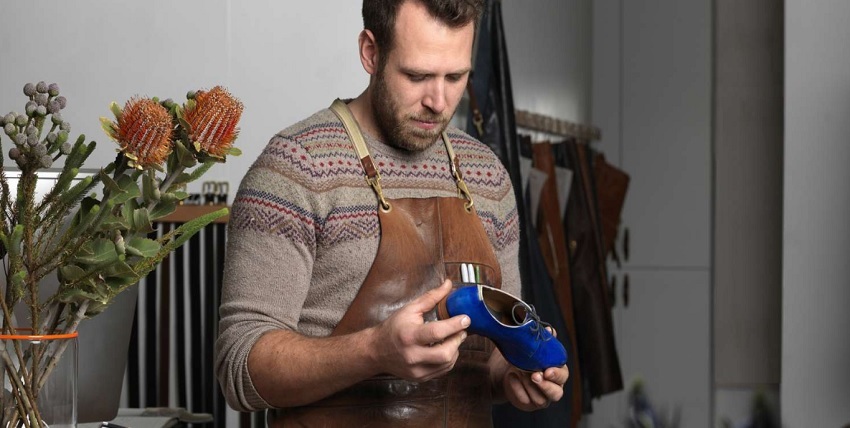In today’s world of worldwide commerce, the attractiveness of supporting local artists by selecting shoes that are hand-crafted carries with it not only an ethical influence but also a personal touch.
When you purchase a pair of shoes that have been crafted by artisans, you are not only acquiring footwear; you are also making an investment in the process of handicrafting, community, and sustainability.
The direct support has a significant impact on the economy of the local communities, the traditions of the people, and even the environment.
The first and perhaps most immediate impact of purchasing hand-crafted shoes like Mou boots is economic support for local artisans. These craftspeople often operate small businesses, and each purchase contributes directly to their livelihoods.
Unlike mass-produced footwear brands, which might funnel profits towards distant shareholders, artisan workshops benefit directly from every sale. This financial boost helps sustain the artisans and their families, ensuring they can continue their craft in a world increasingly dominated by large scale manufacturing.
Moreover, choosing hand-crafted shoes helps preserve cultural heritage. Artisanal shoemaking involves skills that have been passed down through generations. Each pair of shoes is a testament to these traditions, encapsulating techniques and designs unique to specific cultures or regions. For instance, Mou boots are not only footwear but also cultural artifacts that reflect the heritage of their makers.
By opting for these kinds of shoes, you play a part in keeping these valuable artisanal skills alive, ensuring they aren’t lost to the sands of time amidst modern, automated production methods.
Environmental sustainability is another significant benefit of supporting local artisans. Hand-crafted shoes are typically made on a much smaller scale than those produced by major manufacturers.
This smaller scale production often results in a lower carbon footprint, as it usually requires less energy and generates less waste. Furthermore, artisans like those who make Mou footwear often use locally sourced materials, which reduces the need for long-distance transportation and, consequently, lowers the overall environmental impact.
Shoes that are hand-crafted are notable not only for their excellence but also for their durability. In contrast to mass-produced shoes, which may be manufactured rapidly and inexpensively in order to maximize profits, artisan shoes are custom-made with careful attention to detail and a high level of quality.
Not only does this painstaking technique result in a superior product, but it also increases the likelihood that the shoes will last for a longer period of time. Shoes with a longer lifespan require fewer replacements, which consequently results in less waste. If you choose shoes that are made by hand and are long-lasting, you are helping to break the cycle of consumerism that is characteristic of the fashion industry.
Lastly, purchasing hand-crafted footwear like Mou footwear can foster a sense of community. When you buy from local artisans, you often get the chance to meet the makers and learn about the shoemaking process.
This connection can deepen your appreciation of the footwear and create a personal link between you and the item you’re purchasing. It turns what could be a simple transaction into a meaningful exchange, enhancing the value of the product through personal stories and a shared community spirit.
In essence, choosing hand-crafted shoes is much more than a simple act of shopping. It’s a decision that supports local economies, preserves traditional crafts, promotes environmental sustainability, ensures high quality and durability, and fosters community relationships.
Each pair of shoes bought from artisans like those who make Mou boots is a step towards a more sustainable, ethical, and personally connected way of life. As consumers increasingly seek authenticity and quality, the choice to support local artisans not only feels good but also does good, making it a profoundly impactful decision.







Leave a Reply